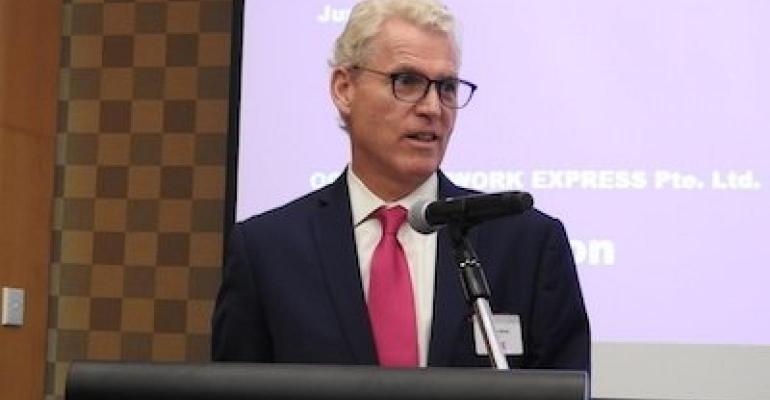Asked at the virtual Singapore International Bunkering Conference (Sibcon) on Tuesday about meeting the targets to decarbonise the industry Nixon said: “It has to be a collaborative effort across the industry none of has the R&D capabilities or the pockets to be able to take a risk on particular asset or technology. The last thing we can have is stranded assets, the last thing we can do is take some punt on some particular cost or technology, so it has to be collaborative.”
What is needed is predictable and uniform approach which he believes can come through the IMO. “ I think we were pretty successful as an industry doing that in 2020 [IMO 2020 sulphur cap], we’ve had very clear guidelines set out for 2030, 2040, and 2050 and now it’s getting to that.”
This requires an acceleration of R&D and Nixon backs the industry’s proposed International Maritime Research and Development Board (IMRB), an R&D organisation that would overseen by IMO member states and funded by initially by $2 per tonne bunker levy. Once R&D projects start to bear fruit the levy could be scaled up.
“Then in theory over time we up these fuel levies so we can generate more and more funds. But, before we do that we’ve get to the process in place to collect these levies in a fair open way, in a predictable way and showing these funds are used in the proper way, correct way to build up that trust and we do that it will really accelerate,” Nixon said.
The other area is to work engine manufacturers and fuel suppliers on developing new fuels and speculatively trialling some of these in a limited way. “Maybe we could develop some pilot projects at a regional level, that’s already starting to happen in Europe, maybe we could do that in South East Asia as well,” he said.
Copyright © 2024. All rights reserved. Seatrade, a trading name of Informa Markets (UK) Limited.
Add Seatrade Maritime News to your Google News feed.  |

